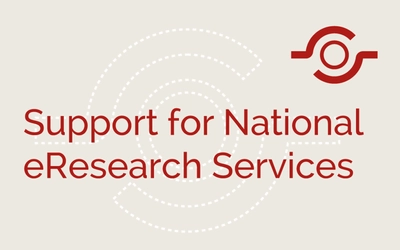The Department of Industry, Innovation, Science, Research and Tertiary Education (DIISTRE) provided project funding to enhance the AAF’s utility and hence drive broader research sector participation in the Federation. All aspects of the project have now been finalised with the submission of the final report to the Department. CAUDIT facilitated the works via its subcontractor, Australian Access Federation (AAF) who undertook a number of the activities of the original project plan which included six key activities (click on the button below for summary of the project). The key highlight of the project was the successful implementation and release of Virtual Home (VH), which has expanded the reach and capability of the AAF. The VH has enabled researchers and research groups that were not associated with an identity provider (IdP) to access research resources and services that use the AAF for authentication. By removing technical barriers and providing a self-service interface the AAF has simplified the process to on-board research collaboration partners into the Federation. The key breakthrough of the project was the technical enablement of the Federation Registry tool that will allow the AAF to be connected to the global federation initiative known as eduGAIN. By enabling this functionality the AAF continues to work towards the activities required for the internationalisation of the federation. The internationalisation of the AAF is an important part of connecting Australian researchers with their counterparts globally and further work towards fully enabling this capability is important. Further information on each project can be found by clicking on the buttons below. [Virtual Home Registry (VHO)](https://www.caudit.edu.au/virtual-home-registry-vho%20) [AAF Level of Identity Assurance Registry (LoIAR)](https://www.caudit.edu.au/aaf-level-identity-assurance-registry-loiar%20) [Identity Provider (IdP) Improvement Program](https://www.caudit.edu.au/identity-provider-idp-improvement-program%20) [Institutional service-desk engagement program ](https://www.caudit.edu.au/institutional-service-desk-engagement-program%20) [User-pays model of grid certificates of authentication](https://www.caudit.edu.au/user-pays-model-grid-certificates-authentication%20) [Technical enablement of the Federation to participate in eduGAIN](https://www.caudit.edu.au/technical-enablement-federation-participate-edugain%20) #### Project Conclusions The AAF continues to play a significant role in the Australian education and research landscape by providing a framework and support infrastructure to facilitate trusted electronic communications and collaboration within and between universities and research institutions in Australia. As a national shared service, the AAF has continued to evolve to meet the needs of subscribers and those of the broader research community. Projects such as this one have been vital for the AAF in enabling continued innovation of services and to develop new methods of enabling improved access for the Australian Higher Education and Research sector. Importantly this work has laid the foundation to enable new capability within the Federation and the ability to provide ongoing review and improvement of AAF services. As the AAF progresses towards internationalisation and enabling future collaboration at a global scale, this will increase the reach and needs of Australian researchers. While the project has laid the foundations for this to occur, it will still need to continue to undertake policy and process activities as part of operationalising the service (which was out of scope of this project). The success of this project is due to the dedication of the AAF team and the willing participation of the Australian universities and research organisations that are part of the AAF. It is also important to highlight the support provided from the Council of Australian University Directors of Information Technology (CAUDIT) and the Department of Education in enabling the successful completion of this project.

CAUDIT acknowledges the Traditional Owners of the lands where we live, learn and work. We pay our respects to Elders past and present and celebrate the stories, culture and traditions of all First Nations people.
© Copyright 2012-2025 CAUDIT All Rights Reserved - ABN 39 514 469 351 - Privacy Policy -Terms and Conditions -v2.7.1 on 03 Jul 2025 - 06:27:34 - Site powered byTektonic Labs

